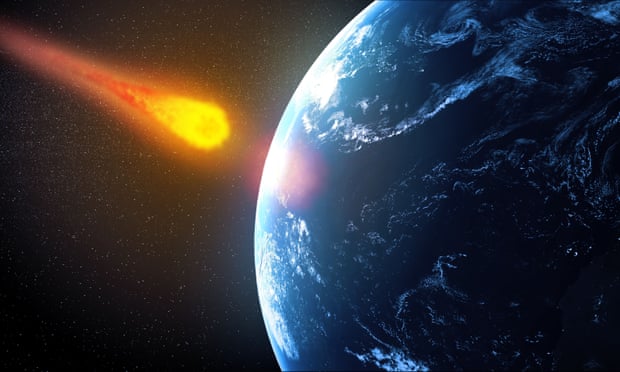Earth woefully unprepared for surprise comet or asteroid, Nasa scientist warns
Scientist recommended Nasa build an interceptor rocket, with periodic testing, alongside an observer spacecraft to stop catastrophic fireballs from hitting us
by Alan Yuhas in San Francisco
 Large and potentially dangerous asteroids and comets are extremely rare, scientists said – ‘But on the other hand they are the extinction-level events.’ Photograph: Mopic / Alamy/Alamy
Large and potentially dangerous asteroids and comets are extremely rare, scientists said – ‘But on the other hand they are the extinction-level events.’ Photograph: Mopic / Alamy/Alamy
Humans are woefully unprepared for a surprise asteroid or comet, a Nasa scientist warned on Monday, at a presentation with nuclear scientists into how humans might deflect cosmic dangers hurtling toward Earth.
“The biggest problem, basically, is there’s not a hell of a lot we can do about it at the moment,” said Dr Joseph Nuth, a researcher with Nasa’s Goddard Space Flight Center.
Speaking at the annual meeting of American Geophysical Union, Nuth noted that large and potentially dangerous asteroids and comets are extremely rare, compared to the small objects that occasionally explode in Earth’s sky or strike its surface. “But on the other hand they are the extinction-level events, things like dinosaur killers, they’re 50 to 60 million years apart, essentially. You could say, of course, we’re due, but it’s a random course at that point.”
Comets follow distant paths from Earth but sometimes get knocked into the neighborhood. Nuth said that the Earth had “a close encounter” in 1996, when an aberrant comet flew into Jupiter, and then again in 2014, when a comet passed “within cosmic spitting distance of Mars”. That second comet was only discovered 22 months before its brush with a planet: not nearly enough time to launch a deflection mission, had it been on a course for Earth.
